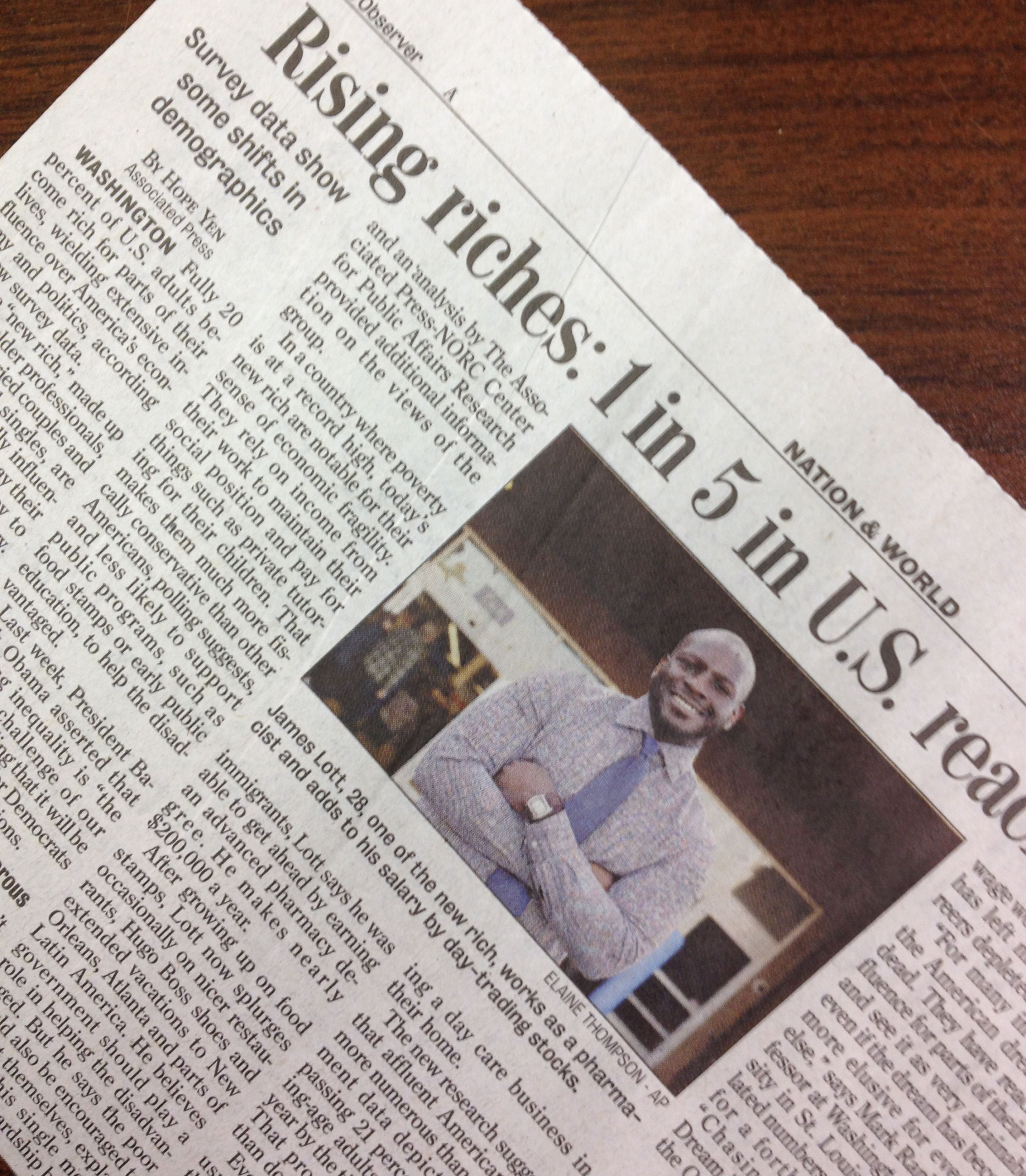 If you’ve bought into President Obama’s standard line about growing income inequality and the unraveling of the social contract, you must have been puzzled to read this Associated Press report in the News & Observer or other publications across the country.
If you’ve bought into President Obama’s standard line about growing income inequality and the unraveling of the social contract, you must have been puzzled to read this Associated Press report in the News & Observer or other publications across the country.
Fully 20 percent of U.S. adults become rich for parts of their lives, wielding extensive influence over America’s economy and politics, according to new survey data.
These “new rich,” made up largely of older professionals, working married couples and more educated singles, are becoming politically influential, and economists say their capacity to spend is key to the U.S. economic recovery. But their rise is also a sign of the nation’s continuing economic polarization.
They extend well beyond the wealthiest 1 percent, a traditional group of super-rich millionaires and billionaires with long-held family assets. The new rich have household income of $250,000 or more at some point during their working lives, putting them — if sometimes temporarily — in the top 2 percent of earners. …
… In a country where poverty is at a record high, today’s new rich are notable for their sense of economic fragility. They rely on income from their work to maintain their social position and pay for things such as private tutoring for their children. That makes them much more fiscally conservative than other Americans, polling suggests, and less likely to support public programs, such as food stamps or early public education, to help the disadvantaged.
Last week, President Barack Obama asserted that growing inequality is “the defining challenge of our time,” signaling that it will be a major theme for Democrats in next year’s elections.
“In this country, you don’t get anywhere without working hard,” said James Lott, 28, a pharmacist in Renton, Wash., who adds to his six-figure salary by day-trading stocks. The son of Nigerian immigrants, Lott says he was able to get ahead by earning an advanced pharmacy degree. He makes nearly $200,000 a year.
After growing up on food stamps, Lott now splurges occasionally on nicer restaurants, Hugo Boss shoes and extended vacations to New Orleans, Atlanta and parts of Latin America. He believes government should play a role in helping the disadvantaged. But he says the poor should be encouraged to support themselves, explaining that his single mother rose out of hardship by starting a day-care business in their home.
The new research suggests that affluent Americans are more numerous than government data depict, encompassing 21 percent of working-age adults for at least a year by the time they turn 60. That proportion has more than doubled since 1979.


